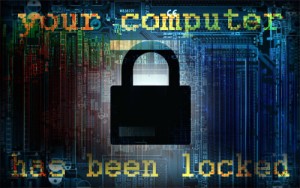Don’t let scammers hold you to ransom

The trend of cyber criminals infecting computers with ransomware is a growing one and both consumers and businesses are at risk. Anyone who uses a computer is susceptible and need to know how to avoid a ransomware attack.
The scammers trick computer users into installing malicious software, or malware for short, by encouraging them to open an attachment in an email or directing the person to a website where the ransomware is unknowingly downloaded.
After the ransomware is installed, a pop-up message appears on the computer stating that the user has been locked out and that files have been encrypted. The scammers ask for payment to unlock the computer and set a deadline for the ransom to be paid.
Consumer Protection WA has received more than 30 reports of ransomware attacks over the past year. There are two recent cases that we can speak about in a bit more detail.
-
Consumer Protection in Perth was contacted by the owners of a removalist company that was attacked by ransomware after a staff member opened an attachment received by email. The small business lost several thousand dollars and information about clients before the problem could be rectified.
-
A pest control business contacted one of our regional WA offices to report a ransomware attack. After receiving a purchase order via email, that looked just like their normal purchase order emails, they clicked to open it and got a pop-up message stating that the computer had been frozen and a $500 ransom would have to be paid to allow the user back in. Unfortunately they hadn’t backed up their data for six months. A computer technician was unable to decrypt the files and after 3 business days they had no choice but to pay the ransom. They have now saved all the recovered data and learned a costly lesson to back up daily.
We think these cases are just the tip of the iceberg as many attacks go unreported.
Ransomware can be devastating to both home computer users and businesses that don’t have the time, expertise or resources to deal with the problem.
Consumer Protection recommends not to pay money to cyber criminals if computers are infected by ransomware as the scammers are likely to come back for more money. However, we are aware that the reality for some businesses, especially those who have not backed up their data for a considerable amount of time, is that paying the ransom is seen as a worthwhile investment to try to retrieve files that are valued at more than the requested ransom amount. Indeed some businesses have had the files unlocked/decrypted upon payment of the ransom.
Before parting with any money try to find a solution that does not involve rewarding cyber criminals.
-
Use a different device to search online for a FREE solution – simply type ‘decrypt ransomware’ or similar phrase into the search function. Importantly beware of scammers seeking payment for decryption.
-
Seek help from a local, reputable computer technician. You could see whether a trusted fellow businessperson can recommend a computer technician who they have used and who has done a good job. Alternatively, the Australian Computer Society has a register of independently assessed computer professionals who agree to comply with a code of ethics. At the time of writing there are 79 in WA. You can search online at: www.acs.org.au/findyourcp
Take measures to prevent ransomware and spread the word amongst staff:
-
Do not open attachments that could be infected, especially from unknown senders.
-
If in doubt about an attachment do not open it, even if it is from someone you know. Their computer or email account could have been hacked.
-
Make sure you have up-to-date anti-virus, anti-spyware and firewall software and scan your computer(s) regularly.
-
Keep a backup copy of your data in a safe place, disconnected from your computer and the internet e.g. an external hard drive, which you can buy from an electronics retailer.
-
Only visit reputable websites and online services.
For further information visit: www.scamnet.wa.gov.au/ransomware
See a WA businesswoman’s story via this Channel 9 News video:



